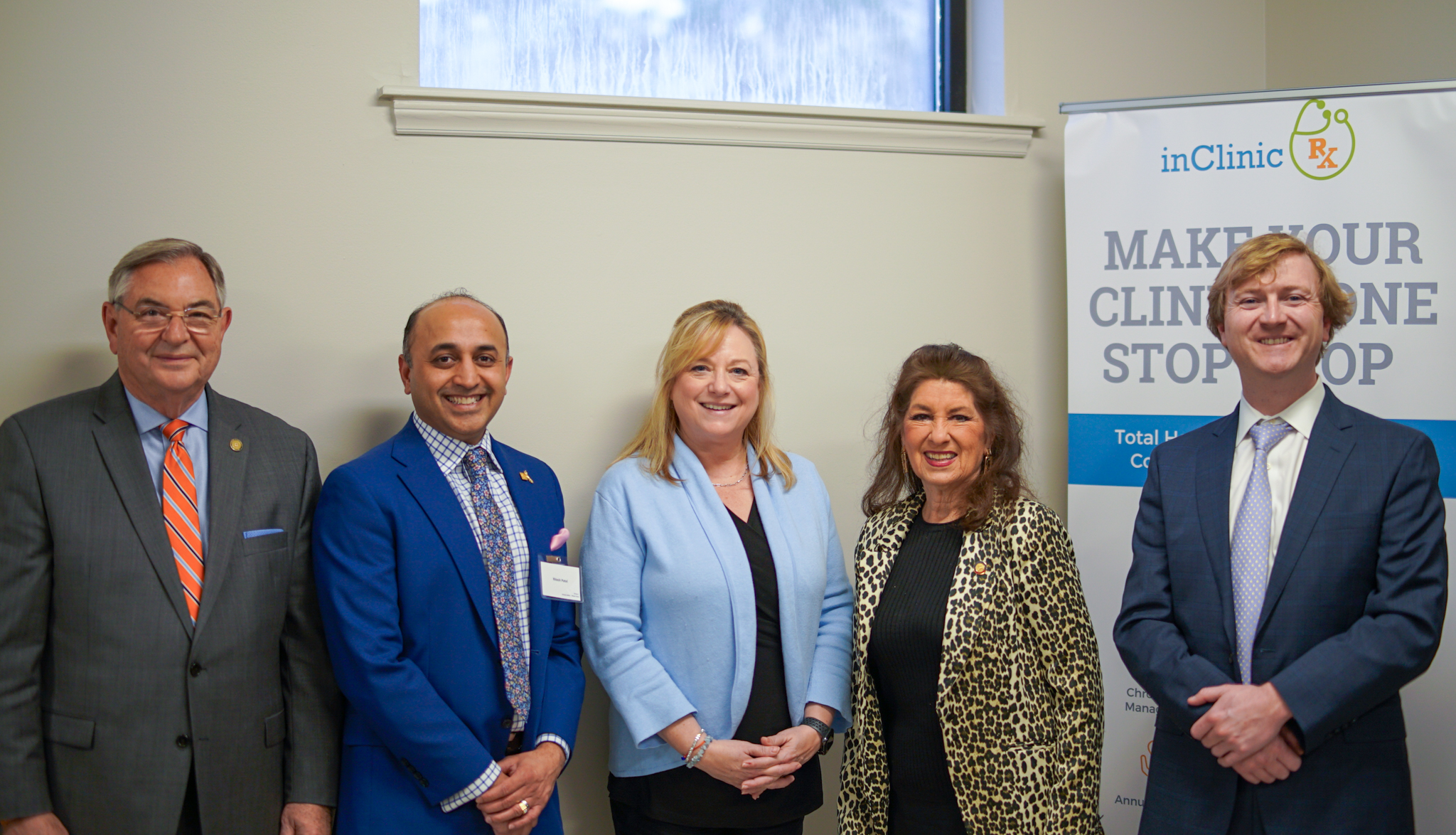February 2, 2024

The UNC Eshelman School of Pharmacy has launched a series of regional events in an effort to expand the reach and adoption of patient care services.
On January 31, the School convened business and health care leaders from Johnston and Harnett counties, along with legislative leaders from the North Carolina General Assembly, in Benson, North Carolina at the Eastern Carolina Medical Center for the first regional medication optimization catalyst event of 2024.
The vision of the catalyst event series is to establish North Carolina as a leading example of statewide collaboration and to generate ideas to improve patient outcomes and promote ongoing collaboration between stakeholders.
“In order to achieve this vision, we must come together as a unified front and build upon and strengthen community relationships to find viable patient-centered solutions at the local level,” said Angela Kashuba, Dean of the UNC Eshelman School of Pharmacy in her opening remarks.
The regional approach for these catalyst events allows local clinics and pharmacies to highlight best practices and successful team-based care examples. The event was also a chance for attendees to learn about new health care delivery and medication management innovations with opportunities to improve outcomes and lower costs for patients locally and across the state, while aiming to impact policy change.
Ritesh Patel, Pharm.D., founder and CEO of In-Clinic Rx, and Brent Talley, Pharm.D., owner at Hayes Barton Pharmacy, spoke on how medication optimization coordinates care, reduces costs and improves outcomes. Patel also explained the collaborative practice model and how it has enhanced patient care while moving the pharmacy profession forward. “The total team care approach means bringing our patient into the center of our care team and using pharmacists to deliver collaborative care and ensure that our patients are living a better, healthier life,” he said.
Talley touched on current trends of Pharmacy Benefit Managers (PBM) contracts and how they are affecting pharmacies in a way that will result in more closures of pharmacies around the country. “This will create significant gaps in health care through less patient access,” he said.
“As pharmacy moves from a dispensing business model to reimbursement for patient-centered services, now is the time to move health care and pharmacy forward in North Carolina,” said Kashuba.
Other speakers included Sen. Jim Burgin (R-Harnett, Lee, Sampson), Sen. Benton G. Sawrey (R-Johnston), Rep. Donna McDowell White (R-Johnston) and Dhruv Vyas, M.D., medical director at In-Clinic Rx.
This is the third catalyst event organized by the School. The first two events, one in 2022 and the other in 2023, took place in Chapel Hill and focused on health care payers, providers and pharmacy to identify collaborative opportunities that advance medication optimization within population health models.
The next regional medication optimization catalyst event will be in Asheville, North Carolina at the Mountain Area Health Education Center (MAHEC) on February 23.
Latest News

Dean Angela Kashuba receives Carolina Alumni Faculty Service Award

RASP poster presentations capture student research


